Psalms
Published: May 2009
Price range: £15.00 through £35.00
The Book of Psalms is often seen as an anthology of prayers and hymns from which the reader may extract a selection as need or interest dictates. However, a recent development in Psalms scholarship has been a discussion of whether the collection of psalms has some overall structure. Is the whole of the Book of Psalms greater than the sum of its individual parts? This commentary argues that it is and presents a continuous reading of the Book of Psalms.
Moreover, the long-standing tradition, found within both Judaism and Christianity, of associating the psalms with David is used as a reading strategy. In this volume, the Psalms are presented sequentially. Each has its place in the collection but thirty-five are treated at greater length. They are read, at least in the first two books (Psalms 1 —72), as if they were David's words. Beyond that a more complex and developed association between David and the Psalms is demanded. David becomes a figure of hope for a different future and a new royal reign reflecting the reign of Yahweh. Throughout, David remains a model of piety for all who seek to communicate with God in prayer. It is in the light of this that later disasters in the life of Israel, especially the Babylonian Exile, can be faced. In the Book of Psalms, the past, in terms of both David's life and the history of Israel, is the key to future well-being and faithfulness.
Psalms
Price range: £15.00 through £35.00
The Book of Psalms is often seen as an anthology of prayers and hymns from which the reader may extract a selection as need or interest dictates. However, a recent development in Psalms scholarship has been a discussion of whether the collection of psalms has some overall structure. Is the whole of the Book of Psalms greater than the sum of its individual parts? This commentary argues that it is and presents a continuous reading of the Book of Psalms.
Moreover, the long-standing tradition, found within both Judaism and Christianity, of associating the psalms with David is used as a reading strategy. In this volume, the Psalms are presented sequentially. Each has its place in the collection but thirty-five are treated at greater length. They are read, at least in the first two books (Psalms 1 —72), as if they were David's words. Beyond that a more complex and developed association between David and the Psalms is demanded. David becomes a figure of hope for a different future and a new royal reign reflecting the reign of Yahweh. Throughout, David remains a model of piety for all who seek to communicate with God in prayer. It is in the light of this that later disasters in the life of Israel, especially the Babylonian Exile, can be faced. In the Book of Psalms, the past, in terms of both David's life and the history of Israel, is the key to future well-being and faithfulness.
Mark, Second Edition
Published: Apr 2009
Price range: £15.00 through £35.00
In this commentary, Broadhead explores the Gospel of Mark for literary designs that might guide modern readers. He gives special attention to structure, strategy, significance and the appropriation of meaning, and his analysis shows the Gospel as a sequential account which employs a strategy of reciprocity among its episodes. Clear signs are created within this Gospel, the meaning of which is negotiated by the first readers in the aftermath of the Temple's fall. Modern readers are encouraged to connect these signs to their own world and to initiate a new performance of this Gospel.
This Second Edition is a reprint, with altered pagination, of the volume first published in 1991 by Sheffield Academic Press.
Mark, Second Edition
Price range: £15.00 through £35.00
In this commentary, Broadhead explores the Gospel of Mark for literary designs that might guide modern readers. He gives special attention to structure, strategy, significance and the appropriation of meaning, and his analysis shows the Gospel as a sequential account which employs a strategy of reciprocity among its episodes. Clear signs are created within this Gospel, the meaning of which is negotiated by the first readers in the aftermath of the Temple's fall. Modern readers are encouraged to connect these signs to their own world and to initiate a new performance of this Gospel.
This Second Edition is a reprint, with altered pagination, of the volume first published in 1991 by Sheffield Academic Press.
Matthew, Second Edition
Published: Apr 2009
Price range: £15.00 through £35.00
Margaret Davies takes up the insights of reader-response criticism to explore how the conventions and strategies of the Gospel of Matthew draw the reader into the world that the text creates. There is a recognition also of the text's significance as authoritative scripture for modern Christians, and the bias that this gives to any interpretative strategy. This is a reprint of the 1993 edition.
Matthew, Second Edition
Price range: £15.00 through £35.00
Margaret Davies takes up the insights of reader-response criticism to explore how the conventions and strategies of the Gospel of Matthew draw the reader into the world that the text creates. There is a recognition also of the text's significance as authoritative scripture for modern Christians, and the bias that this gives to any interpretative strategy. This is a reprint of the 1993 edition.
Job
Published: Sep 2008
Price range: £15.00 through £35.00
This commentary on the book of Job is a non-technical commentary but it is full of Whybray's most mature reflections on the book.
The Introduction deals with the nature and purpose of the book, its specific and distinctive theology, its themes and its various parts and their mutual relationship. Thereafter, Norman Whybray, who is renowned for his insightful commentaries, usually comments on small sections of the text, and verse-by-verse in some especially difficult passages.
As a whole, his commentary is illustrative of the fact that the book of Job is more concerned with the nature of God than with the problem of suffering.
This is a reprint of the original edition in 1998.
Job
Price range: £15.00 through £35.00
This commentary on the book of Job is a non-technical commentary but it is full of Whybray's most mature reflections on the book.
The Introduction deals with the nature and purpose of the book, its specific and distinctive theology, its themes and its various parts and their mutual relationship. Thereafter, Norman Whybray, who is renowned for his insightful commentaries, usually comments on small sections of the text, and verse-by-verse in some especially difficult passages.
As a whole, his commentary is illustrative of the fact that the book of Job is more concerned with the nature of God than with the problem of suffering.
This is a reprint of the original edition in 1998.
With Eyes of Flesh: The Bible, Gender and Human Rights
Published: Aug 2008
Price range: £19.50 through £50.00
Carole Fontaine, well known among biblical scholars for her feminist studies in the biblical wisdom traditions and the ancient Near East, is also a human rights and interfaith activist working on issues of violence against Muslim women in the Middle East and Southern Asia and a board member of many agencies such as the International Network for the Rights of Female Victims of Violence in Pakistan, and the Women's Forum against Fundamentalism in Iran.
In this collection of her essays, mostly previously unpublished, she brings together these two concerns, distilling from the scriptures of Judaism, Christianity and Islam valuable insights into current questions of human rights. Unlike many writers, Fontaine recognizes the critical role of gender in the fundamental concept of the 'Other', so determinative for our view of humanity.
In our days, Fontaine argues, human rights issues have taken on a new dimension in political discourse about war, peace and terror, where often an appeal is made to religious and scriptural justifications for the violation or preservation of rights. Fontaine urges attention to the priority of the sufferer in adjudicating meaning, and turns to the 'little texts' of daily ethics rather than grand theological abstractions in order to place 'scriptures' in meaningful conversation with the concrete realities of our world.
This is the second volume of the Amsterdam Studies in the Bible and Religion (ed. Athalya Brenner), a sub-series of the Bible in the Moden World.
With Eyes of Flesh: The Bible, Gender and Human Rights
Price range: £19.50 through £50.00
Carole Fontaine, well known among biblical scholars for her feminist studies in the biblical wisdom traditions and the ancient Near East, is also a human rights and interfaith activist working on issues of violence against Muslim women in the Middle East and Southern Asia and a board member of many agencies such as the International Network for the Rights of Female Victims of Violence in Pakistan, and the Women's Forum against Fundamentalism in Iran.
In this collection of her essays, mostly previously unpublished, she brings together these two concerns, distilling from the scriptures of Judaism, Christianity and Islam valuable insights into current questions of human rights. Unlike many writers, Fontaine recognizes the critical role of gender in the fundamental concept of the 'Other', so determinative for our view of humanity.
In our days, Fontaine argues, human rights issues have taken on a new dimension in political discourse about war, peace and terror, where often an appeal is made to religious and scriptural justifications for the violation or preservation of rights. Fontaine urges attention to the priority of the sufferer in adjudicating meaning, and turns to the 'little texts' of daily ethics rather than grand theological abstractions in order to place 'scriptures' in meaningful conversation with the concrete realities of our world.
This is the second volume of the Amsterdam Studies in the Bible and Religion (ed. Athalya Brenner), a sub-series of the Bible in the Moden World.
Philemon
Published: Apr 2008
Price range: £15.00 through £35.00
This latest volume in the Readings series offers a helpful guide to the shortest, and arguably the most personal, as well as enigmatic, of Paul's letters. It surveys the range of interpretations put forward over the years, and identifies the strengths and weaknesses in the traditional reading of Philemon as addressing the estrangement that has arisen between Paul's friend Philemon and his runaway slave Onesimus.
Recent alternatives to this reading are assessed, with particular attention to the light they shed on Paul's own attitude to slavery and his understanding of reconciliation. Historically, the Letter to Philemon has been the focus of much debate between abolitionists and pro-slavery advocates, and the use made of the Letter in the 18th and 19th centuries is here uniquely chronicled. In addition, the story of Onesimus and Philemon, as traditionally conceived, had a great appeal to writers of historical fiction, and a number of examples of that genre are summarized. The book also highlights the way in which Philemon has featured in filmic treatments of Paul's life, including a new and fascinating film in Arabic entitled The Runaway (2006).
The volume offers an excellent introduction, not only to the main historical and critical issues raised by Philemon, but also to the rich legacy that the Letter has created for subsequent generations of readers who remain fascinated by the subtlety of its depiction of human relationships.
Philemon
Price range: £15.00 through £35.00
This latest volume in the Readings series offers a helpful guide to the shortest, and arguably the most personal, as well as enigmatic, of Paul's letters. It surveys the range of interpretations put forward over the years, and identifies the strengths and weaknesses in the traditional reading of Philemon as addressing the estrangement that has arisen between Paul's friend Philemon and his runaway slave Onesimus.
Recent alternatives to this reading are assessed, with particular attention to the light they shed on Paul's own attitude to slavery and his understanding of reconciliation. Historically, the Letter to Philemon has been the focus of much debate between abolitionists and pro-slavery advocates, and the use made of the Letter in the 18th and 19th centuries is here uniquely chronicled. In addition, the story of Onesimus and Philemon, as traditionally conceived, had a great appeal to writers of historical fiction, and a number of examples of that genre are summarized. The book also highlights the way in which Philemon has featured in filmic treatments of Paul's life, including a new and fascinating film in Arabic entitled The Runaway (2006).
The volume offers an excellent introduction, not only to the main historical and critical issues raised by Philemon, but also to the rich legacy that the Letter has created for subsequent generations of readers who remain fascinated by the subtlety of its depiction of human relationships.
David Observed: A King in the Eyes of His Court
Published: Mar 2008
Price range: £18.50 through £50.00
From his earliest anointing in 1 Samuel 16 until his deathbed discourse in 1 Kings 2, David is surrounded by a remarkable cast of supporting characters -- an ensemble whose varying perspectives on him create some of the complexity of this royal character in the biblical narrative.
David's older brother Eliab speaks only once to his younger sibling, but this conversation has significant implications for the larger narrative. The encounter with Ahimelech the priest in 1 Samuel 21-22 in many ways symbolizes the 'crossing fates' of David and Saul in the sanctuary at Nob. Abner is the rival general who wants to make a deal, but his actions are difficult to gauge: does he have his own set of royal ambitions? Joab is pre-eminently a man of action and a key commander of David's troops, but this military figure surprisingly turns out to be as well an innovative reader and royal exegete.
Nathan the prophet has a tendency to surface at pivotal moments in the story, as a decisive influence on the spiritual and political affairs of the king. Ahithophel is a senior counsellor in the Davidic administration who becomes mysteriously embittered against David in the rebellion of Absalom; in narratives about him there is a confluence of tangled motives and prophetic words. Finally, Solomon is the younger son who accedes to the coveted Davidic throne, and curiously shares traits with his ancestor Jacob and has a swearing problem in 1 Kings 1-2.
David Observed: A King in the Eyes of His Court
Price range: £18.50 through £50.00
From his earliest anointing in 1 Samuel 16 until his deathbed discourse in 1 Kings 2, David is surrounded by a remarkable cast of supporting characters -- an ensemble whose varying perspectives on him create some of the complexity of this royal character in the biblical narrative.
David's older brother Eliab speaks only once to his younger sibling, but this conversation has significant implications for the larger narrative. The encounter with Ahimelech the priest in 1 Samuel 21-22 in many ways symbolizes the 'crossing fates' of David and Saul in the sanctuary at Nob. Abner is the rival general who wants to make a deal, but his actions are difficult to gauge: does he have his own set of royal ambitions? Joab is pre-eminently a man of action and a key commander of David's troops, but this military figure surprisingly turns out to be as well an innovative reader and royal exegete.
Nathan the prophet has a tendency to surface at pivotal moments in the story, as a decisive influence on the spiritual and political affairs of the king. Ahithophel is a senior counsellor in the Davidic administration who becomes mysteriously embittered against David in the rebellion of Absalom; in narratives about him there is a confluence of tangled motives and prophetic words. Finally, Solomon is the younger son who accedes to the coveted Davidic throne, and curiously shares traits with his ancestor Jacob and has a swearing problem in 1 Kings 1-2.
Hebrews, Second Edition
Published: Feb 2008
Price range: £15.00 through £35.00
This commentary on the Letter to the Hebrews envisages the recipients of the letter as a community that has embraced the Christian message but is beginning to question its adequacy to meet their spiritual needs. They have given up the richness of Jewish ritual and cultic tradition for a way of life that lacks the venerable symbols and institutions they had previously valued.
Gordon highlights the arguments and rhetorical strategies the author uses to counter this feeling of 'cultic deficit' as he draws attention to what they actually possess in consequence of their Christian commitment.
The Letter to the Hebrews has particular contemporary relevance today because, in warning the community against 'going back', the author implies that Christianity has superseded their ancestral Jewish faith. That may seem a slight on the religion 'superseded', but Gordon points out that Judaism itself, as well as Christianity, represents a significant break with the religion of the Hebrew Bible/Old Testament. Jewish —Christian dialogue would profit from being conducted in that light.
For this Second Edition, the author has written an additional Introduction, and the pagination of this edition differs from that of the first.
Hebrews, Second Edition
Price range: £15.00 through £35.00
This commentary on the Letter to the Hebrews envisages the recipients of the letter as a community that has embraced the Christian message but is beginning to question its adequacy to meet their spiritual needs. They have given up the richness of Jewish ritual and cultic tradition for a way of life that lacks the venerable symbols and institutions they had previously valued.
Gordon highlights the arguments and rhetorical strategies the author uses to counter this feeling of 'cultic deficit' as he draws attention to what they actually possess in consequence of their Christian commitment.
The Letter to the Hebrews has particular contemporary relevance today because, in warning the community against 'going back', the author implies that Christianity has superseded their ancestral Jewish faith. That may seem a slight on the religion 'superseded', but Gordon points out that Judaism itself, as well as Christianity, represents a significant break with the religion of the Hebrew Bible/Old Testament. Jewish —Christian dialogue would profit from being conducted in that light.
For this Second Edition, the author has written an additional Introduction, and the pagination of this edition differs from that of the first.
2 Chronicles
Published: Dec 2007
Price range: £15.00 through £35.00
Across the pages of 2 Chronicles a colourful cast of characters passes in breathless parade before the reader. The tales of the kings of Judah are told in sequence, from Rehoboam 'the Enlarger' (who on the contrary shrinks the kingdom) to Zedekiah 'the Righteous' (who equally contrariwise profanes the divine name). These motley monarchs are preceded by the unparalleled King Solomon of All Israel and succeeded by the imperial King Cyrus of Persia, and all the while the tellers of the tales weave an insistent ideological thread through the fabric of their stories. John Jarick's reading of Chronicles brings out the fascination and discomfort of handling an ancient scroll that presents itself as the authoritative account of how things were and how they ought to be.
2 Chronicles
Price range: £15.00 through £35.00
Across the pages of 2 Chronicles a colourful cast of characters passes in breathless parade before the reader. The tales of the kings of Judah are told in sequence, from Rehoboam 'the Enlarger' (who on the contrary shrinks the kingdom) to Zedekiah 'the Righteous' (who equally contrariwise profanes the divine name). These motley monarchs are preceded by the unparalleled King Solomon of All Israel and succeeded by the imperial King Cyrus of Persia, and all the while the tellers of the tales weave an insistent ideological thread through the fabric of their stories. John Jarick's reading of Chronicles brings out the fascination and discomfort of handling an ancient scroll that presents itself as the authoritative account of how things were and how they ought to be.
1 Chronicles, Second Edition
Published: Oct 2007
Price range: £15.00 through £35.00
The books of Chronicles have a certain fantasy quality about them. They create an imaginary world in which things happen just so, and in which any potentially untidy loose ends in their narrative of the past are tied together in a highly systematic way. This is storytelling with the didactic purpose of inculcating a particular ideology, bombarding the reader with a kaleidoscopic procession of heroes and villains and presenting a frontierland of danger and opportunity.
John Jarick's focus on the literary world of Chronicles provides a fresh reading of the work, foregrounding the often unrecognized artistry in the telling of the tale —including at times a distinctly musical language and a careful mathematical precision. But at the same time he does not hide the dark underbelly of the writing, with its persistent note of conformity to the political and religious system advocated by the storytellers. This edition is a reprint of the original 2002 edition with different pagination. A companion volume on 2 Chronicles is published for the first time in 2007.
1 Chronicles, Second Edition
Price range: £15.00 through £35.00
The books of Chronicles have a certain fantasy quality about them. They create an imaginary world in which things happen just so, and in which any potentially untidy loose ends in their narrative of the past are tied together in a highly systematic way. This is storytelling with the didactic purpose of inculcating a particular ideology, bombarding the reader with a kaleidoscopic procession of heroes and villains and presenting a frontierland of danger and opportunity.
John Jarick's focus on the literary world of Chronicles provides a fresh reading of the work, foregrounding the often unrecognized artistry in the telling of the tale —including at times a distinctly musical language and a careful mathematical precision. But at the same time he does not hide the dark underbelly of the writing, with its persistent note of conformity to the political and religious system advocated by the storytellers. This edition is a reprint of the original 2002 edition with different pagination. A companion volume on 2 Chronicles is published for the first time in 2007.
Judges
Published: Oct 2007
Price range: £15.00 through £35.00
In this new contribution to the Readings series of commentaries, Roger Ryan offers a challenge to the fashionable disdain for the heroes of the Book of Judges. As against the current consensus majoring on the supposed flaws in the characters of the judges, and denigrating them as participants in Israel's moral and religious decline, he paints a positive portrait of each of the book's judge-deliverers.
The key element in all the stories of the judges is that each of them wins independence for oppressed Israelites against great odds —an element that should predispose readers to a favourable evaluation of the heroes. Ehud slaughters an enemy king when the only weapon he has is a homemade dagger. Barak resolutely charges downhill against enemy chariots reinforced with iron. Jael slaughters an enemy commander by improvising with a hammer and a tent peg. Gideon defeats hordes of nomadic invaders with a small token army. The lone hero Samson slaughters the Philistine foe in great numbers.
The Book of Judges presents in this reading a dark story-world in which its characters take heroic risks as they resolve conflicts by violent means. Their stories are jubilantly told and readers are expected to be neither squeamish nor censorious.
Judges
Price range: £15.00 through £35.00
In this new contribution to the Readings series of commentaries, Roger Ryan offers a challenge to the fashionable disdain for the heroes of the Book of Judges. As against the current consensus majoring on the supposed flaws in the characters of the judges, and denigrating them as participants in Israel's moral and religious decline, he paints a positive portrait of each of the book's judge-deliverers.
The key element in all the stories of the judges is that each of them wins independence for oppressed Israelites against great odds —an element that should predispose readers to a favourable evaluation of the heroes. Ehud slaughters an enemy king when the only weapon he has is a homemade dagger. Barak resolutely charges downhill against enemy chariots reinforced with iron. Jael slaughters an enemy commander by improvising with a hammer and a tent peg. Gideon defeats hordes of nomadic invaders with a small token army. The lone hero Samson slaughters the Philistine foe in great numbers.
The Book of Judges presents in this reading a dark story-world in which its characters take heroic risks as they resolve conflicts by violent means. Their stories are jubilantly told and readers are expected to be neither squeamish nor censorious.
Orientalism, Assyriology and the Bible
Published: Oct 2007
Price range: £22.50 through £60.00
'Orientalism' refers both to the academic study of the Orient and to Western scholarship that clings to stock images of the timeless East and oriental despotism. This landmark collection of essays, the first in its field, is written by seasoned art historians, Assyriologists and biblical specialists; it is organized under four rubrics:
1. Intellectual and Disciplinary Histories identifies waymarks in the rise of Assyriology in America, shifting images of ancient Assyria in their cultural context, Smithsonian Institution exhibits of 'biblical antiquities' at the world's fairs of 1893 and 1895, the rise of Egyptology in the nineteenth century, Mari scholarship and its impact on biblical studies, and the ancient Near Eastern text anthology as genre (Foster, Frahm, Holloway Reid, Younger).
2. Visual Perspectives suggests itself as a corrective to the academic habit of conjuring a 'texted Orient'. Here are contributions that describe Assyrianizing engravings in the famous Dalziels' Bible Gallery, the reception of ancient Assyria in nineteenth-century England versus France, and artwork for twentieth-century American histories of Israel (Bohrer, Esposito, Long).
3. Of Harems and Heroines explores gender issues in the context of the figure of Semiramis and the idea of the harem in biblical research and Assyriology (Asher-Greve, Solvang).
4. Assyriology and the Bible offers essays that focus on specific figures (Josiah), texts (Genesis 28.10-22, the Uruk Prophecy), or periods (Persian period in biblical historiography) (Grabbe, Handy, Hurowitz, Scurlock).
The volume includes a Bibliography of some 1000 items, an important resource.
Orientalism, Assyriology and the Bible
Price range: £22.50 through £60.00
'Orientalism' refers both to the academic study of the Orient and to Western scholarship that clings to stock images of the timeless East and oriental despotism. This landmark collection of essays, the first in its field, is written by seasoned art historians, Assyriologists and biblical specialists; it is organized under four rubrics:
1. Intellectual and Disciplinary Histories identifies waymarks in the rise of Assyriology in America, shifting images of ancient Assyria in their cultural context, Smithsonian Institution exhibits of 'biblical antiquities' at the world's fairs of 1893 and 1895, the rise of Egyptology in the nineteenth century, Mari scholarship and its impact on biblical studies, and the ancient Near Eastern text anthology as genre (Foster, Frahm, Holloway Reid, Younger).
2. Visual Perspectives suggests itself as a corrective to the academic habit of conjuring a 'texted Orient'. Here are contributions that describe Assyrianizing engravings in the famous Dalziels' Bible Gallery, the reception of ancient Assyria in nineteenth-century England versus France, and artwork for twentieth-century American histories of Israel (Bohrer, Esposito, Long).
3. Of Harems and Heroines explores gender issues in the context of the figure of Semiramis and the idea of the harem in biblical research and Assyriology (Asher-Greve, Solvang).
4. Assyriology and the Bible offers essays that focus on specific figures (Josiah), texts (Genesis 28.10-22, the Uruk Prophecy), or periods (Persian period in biblical historiography) (Grabbe, Handy, Hurowitz, Scurlock).
The volume includes a Bibliography of some 1000 items, an important resource.
Qoheleth, Second Edition
Published: May 2007
Price range: £15.00 through £35.00
Qoheleth's driving question, according to Ogden, is posed in the opening lines of his book. It is the question, What lasting advantage (yithron) results from the multitude of activities in which humans find themselves engaged? In a word, the answer is, None; but the supplementary question remains, How shall we then live?
Qoheleth is no pessimist. Even though he believes that nothing survives from the activities of life, he encourages his readers to live life to the full, to 'eat, drink and enjoy what God provides'. Wisdom is one of those enjoyable benefits of life, but even it has its limitations: it can never produce an understanding of the totality.
What of the classic term hebel (traditionally translated 'vanity') in Qoheleth's thought? It is much better understood, argues Ogden, as 'enigma' or 'mystery', and the mystery it points to is the mystery of the yithron: how is joy the proper goal of human life when we know it must inevitably come to an end without leaving any surplus?
Qoheleth, Second Edition
Price range: £15.00 through £35.00
Qoheleth's driving question, according to Ogden, is posed in the opening lines of his book. It is the question, What lasting advantage (yithron) results from the multitude of activities in which humans find themselves engaged? In a word, the answer is, None; but the supplementary question remains, How shall we then live?
Qoheleth is no pessimist. Even though he believes that nothing survives from the activities of life, he encourages his readers to live life to the full, to 'eat, drink and enjoy what God provides'. Wisdom is one of those enjoyable benefits of life, but even it has its limitations: it can never produce an understanding of the totality.
What of the classic term hebel (traditionally translated 'vanity') in Qoheleth's thought? It is much better understood, argues Ogden, as 'enigma' or 'mystery', and the mystery it points to is the mystery of the yithron: how is joy the proper goal of human life when we know it must inevitably come to an end without leaving any surplus?
Protest Against God: The Eclipse of a Biblical Tradition
Published: Jan 2007
Price range: £15.00 through £50.00
The Hebrew Bible contains many examples of protest or complaint against God. There are classic cases in the psalms of individual lament, but we find the same attitude in community complaint psalms, in the prophetic challenges to God, and in the Book of Job.
And yet, after the exile, the complaint tradition was largely suppressed or marginalized. In this imaginative book, Morrow asks the unheard of question, Why? A shift in the religious imagination of early Judaism had taken place, he argues, spearheaded by the psychology of trauma and by international politics. A magnification of divine transcendence downgraded the intercessory role of the prophet, controlled the raw pain of exile (Lamentations, Second Isaiah), and led to intransigent refusal of the logic of lament (the friends and Yahweh in Job). The theology of complaint was eventually overshadowed by the piety of penitence and praise (the Dead Sea Scrolls).
Modern readers of the Hebrew Bible are not obliged to assent to the loss of lament, nevertheless. Ours is an age when the potency of the biblical complaints against God is being newly appropriated. Although the transcendental imagination of Western culture itself is moving into eclipse, a heightened individual consciousness has emerged. There may still be life, therefore, in the ancient prayer pattern of arguing with God, which assumes that worshippers have rights with God as well as duties, that the Creator has obligations to the creation as well as prerogatives.
This stylish intellectual history will be welcomed for its scope, its panache and its theological engagement. Awarded the 2007 R.B.Y. Scott Book Award for an outstanding book in the areas of Hebrew Bible and/or the Ancient Near East written by a member of the Canadian Society of Biblical Studies.
Protest Against God: The Eclipse of a Biblical Tradition
Price range: £15.00 through £50.00
The Hebrew Bible contains many examples of protest or complaint against God. There are classic cases in the psalms of individual lament, but we find the same attitude in community complaint psalms, in the prophetic challenges to God, and in the Book of Job.
And yet, after the exile, the complaint tradition was largely suppressed or marginalized. In this imaginative book, Morrow asks the unheard of question, Why? A shift in the religious imagination of early Judaism had taken place, he argues, spearheaded by the psychology of trauma and by international politics. A magnification of divine transcendence downgraded the intercessory role of the prophet, controlled the raw pain of exile (Lamentations, Second Isaiah), and led to intransigent refusal of the logic of lament (the friends and Yahweh in Job). The theology of complaint was eventually overshadowed by the piety of penitence and praise (the Dead Sea Scrolls).
Modern readers of the Hebrew Bible are not obliged to assent to the loss of lament, nevertheless. Ours is an age when the potency of the biblical complaints against God is being newly appropriated. Although the transcendental imagination of Western culture itself is moving into eclipse, a heightened individual consciousness has emerged. There may still be life, therefore, in the ancient prayer pattern of arguing with God, which assumes that worshippers have rights with God as well as duties, that the Creator has obligations to the creation as well as prerogatives.
This stylish intellectual history will be welcomed for its scope, its panache and its theological engagement. Awarded the 2007 R.B.Y. Scott Book Award for an outstanding book in the areas of Hebrew Bible and/or the Ancient Near East written by a member of the Canadian Society of Biblical Studies.
The Illegitimacy of Jesus: A Feminist Theological Interpretation of the Infancy Narratives, Expanded Twentieth Anniversary Edition
Published: Oct 2006
Price range: £18.50 through £45.00
This work of impeccable New Testament scholarship was a sensation when it was first published in 1987. Jane Schaberg argued that Matthew and Luke were aware that Jesus had been conceived illegitimately, probably as a result of a rape of Mary, and had left in their Gospels some hints of that knowledge, even though their main purpose was to explore the theological significance of Jesus' birth. By having the Messiah born out of the exploitation of a woman of the poor, God demonstrates the vindication of the oppressed in a truly miraculous manner. Exegetical precision, theological passion, and an exquisite prose style are combined in this landmark book, whose importance is yet to be fully recognized.
Perhaps not surprisingly, the book and its author were vilified, even though scholarly reviewers found much to praise in it, and it still features on many classroom reading lists. For this Anniversary Edition, we have added Schaberg's own disturbing account of the reception of the book, and two extensive responses--one respectfully dissenting, one fully supportive--from other New Testament scholars.
The Illegitimacy of Jesus: A Feminist Theological Interpretation of the Infancy Narratives, Expanded Twentieth Anniversary Edition
Price range: £18.50 through £45.00
This work of impeccable New Testament scholarship was a sensation when it was first published in 1987. Jane Schaberg argued that Matthew and Luke were aware that Jesus had been conceived illegitimately, probably as a result of a rape of Mary, and had left in their Gospels some hints of that knowledge, even though their main purpose was to explore the theological significance of Jesus' birth. By having the Messiah born out of the exploitation of a woman of the poor, God demonstrates the vindication of the oppressed in a truly miraculous manner. Exegetical precision, theological passion, and an exquisite prose style are combined in this landmark book, whose importance is yet to be fully recognized.
Perhaps not surprisingly, the book and its author were vilified, even though scholarly reviewers found much to praise in it, and it still features on many classroom reading lists. For this Anniversary Edition, we have added Schaberg's own disturbing account of the reception of the book, and two extensive responses--one respectfully dissenting, one fully supportive--from other New Testament scholars.
Haggai
Published: Oct 2006
Price range: £15.00 through £35.00
This new commentary is organized around a distinctive discourse analysis of the small prophetic book of Haggai, and an appreciation of its tightly crafted narrative. Identifying six discrete oracles from the prophet Haggai, Meadowcroft structures his analysis of the narrative around those six oracles.
Thematically, the centre of Haggai's prophecy is the role of the temple within the life of the people of God. The desolation of the temple is bound up with the desolation of the land and the desolation of the people on the land. Rebuilding the temple will be the means to break the cycle of desolation. But things are more complex than that. Rebuilding the temple must happen within the fraught imperial context; and rebuilding the temple will foreground a tension between institutional life and the life of the Spirit.
Contextualizing Haggai in today's world, Meadowcroft offers an extensive prolegomenon on reading Haggai as scripture. In it he hears a challenge to the Church in the West and a call to rediscover humanity's priestly role in the temple of an environment under threat of desolation.
Haggai
Price range: £15.00 through £35.00
This new commentary is organized around a distinctive discourse analysis of the small prophetic book of Haggai, and an appreciation of its tightly crafted narrative. Identifying six discrete oracles from the prophet Haggai, Meadowcroft structures his analysis of the narrative around those six oracles.
Thematically, the centre of Haggai's prophecy is the role of the temple within the life of the people of God. The desolation of the temple is bound up with the desolation of the land and the desolation of the people on the land. Rebuilding the temple will be the means to break the cycle of desolation. But things are more complex than that. Rebuilding the temple must happen within the fraught imperial context; and rebuilding the temple will foreground a tension between institutional life and the life of the Spirit.
Contextualizing Haggai in today's world, Meadowcroft offers an extensive prolegomenon on reading Haggai as scripture. In it he hears a challenge to the Church in the West and a call to rediscover humanity's priestly role in the temple of an environment under threat of desolation.
Isaiah
Published: Oct 2006
Price range: £15.00 through £35.00
Peter Miscall's commentary on Isaiah was among the first volumes in the series Readings published by JSOT Press in 1993. Sheffield Phoenix Press is now relaunching the series, under the editorship of John Jarick, with a revised reprint of Miscall's work (including a new preface), and an entirely new volume on Haggai by Tim Meadowcroft.
The aim of the series remains to present compact literary readings of the biblical books, unencumbered by the paraphernalia of traditional criticism and alert to the impact of literary studies on biblical interpretation. Each contributor to the series approaches their text from their own personal literary position.
In this fine and characteristic study, Miscall concentrates especially on the play of images in the prophetic book, their interweaving and constant intertextuality.
Isaiah
Price range: £15.00 through £35.00
Peter Miscall's commentary on Isaiah was among the first volumes in the series Readings published by JSOT Press in 1993. Sheffield Phoenix Press is now relaunching the series, under the editorship of John Jarick, with a revised reprint of Miscall's work (including a new preface), and an entirely new volume on Haggai by Tim Meadowcroft.
The aim of the series remains to present compact literary readings of the biblical books, unencumbered by the paraphernalia of traditional criticism and alert to the impact of literary studies on biblical interpretation. Each contributor to the series approaches their text from their own personal literary position.
In this fine and characteristic study, Miscall concentrates especially on the play of images in the prophetic book, their interweaving and constant intertextuality.
Empire and Apocalypse: Postcolonialism and the New Testament
Published: Oct 2006
Price range: £18.50 through £37.00
In Empire and Apocalypse Stephen Moore offers us the most complete introduction yet to the emergent field of postcolonial biblical criticism. It includes an indispensable in-depth introduction to postcolonial theory and criticism together with a detailed survey of postcolonial biblical criticism.
Next come three substantial exegetical chapters on the Gospels of Mark and John and the Book of Revelation, which together demonstrate how postcolonial studies provide fresh conceptual resources and critical strategies for rethinking early Christianity's complex relations to the Roman Empire. Each of these three texts, to different degrees, Moore argues, mimic and replicate fundamental facets of Roman imperial ideology even while resisting and eroding it.
The book concludes with an amply annotated bibliography whose main section provides a comprehensive listing of work done to date in postcolonial biblical criticism.
Empire and Apocalypse: Postcolonialism and the New Testament
Price range: £18.50 through £37.00
In Empire and Apocalypse Stephen Moore offers us the most complete introduction yet to the emergent field of postcolonial biblical criticism. It includes an indispensable in-depth introduction to postcolonial theory and criticism together with a detailed survey of postcolonial biblical criticism.
Next come three substantial exegetical chapters on the Gospels of Mark and John and the Book of Revelation, which together demonstrate how postcolonial studies provide fresh conceptual resources and critical strategies for rethinking early Christianity's complex relations to the Roman Empire. Each of these three texts, to different degrees, Moore argues, mimic and replicate fundamental facets of Roman imperial ideology even while resisting and eroding it.
The book concludes with an amply annotated bibliography whose main section provides a comprehensive listing of work done to date in postcolonial biblical criticism.
Creation and Creativity: From Genesis to Genetics and Back
Published: Aug 2006
Price range: £18.50 through £40.00
The idea of creation and creativity is among the most powerful and pervasive of metaphors bequeathed to the modern world by the scriptures of Judaism, Christianity and Islam.
Twelve specialists here explore the original sources and contemporary manifestations of the theme in both high and low culture, from the Book of Genesis to James Joyce's Ulysses, Children of Gebalawi by the Egyptian novelist Naguib Mahfouz, and the Polish poetry of Wislawa Szymborska, and to popular films, such as Bruce Almighty and Animatrix, and animation films for children.
Even current debates on genetics and ecology and the public exhibition of plastinated human bodies invoke these same themes, and make this volume a topical contribution to cultural studies today.
This is the first volume of the Amsterdam Studies in the Bible and Religion (ed. Athalya Brenner), a sub-series of The Bible in the Modern World .
Creation and Creativity: From Genesis to Genetics and Back
Price range: £18.50 through £40.00
The idea of creation and creativity is among the most powerful and pervasive of metaphors bequeathed to the modern world by the scriptures of Judaism, Christianity and Islam.
Twelve specialists here explore the original sources and contemporary manifestations of the theme in both high and low culture, from the Book of Genesis to James Joyce's Ulysses, Children of Gebalawi by the Egyptian novelist Naguib Mahfouz, and the Polish poetry of Wislawa Szymborska, and to popular films, such as Bruce Almighty and Animatrix, and animation films for children.
Even current debates on genetics and ecology and the public exhibition of plastinated human bodies invoke these same themes, and make this volume a topical contribution to cultural studies today.
This is the first volume of the Amsterdam Studies in the Bible and Religion (ed. Athalya Brenner), a sub-series of The Bible in the Modern World .



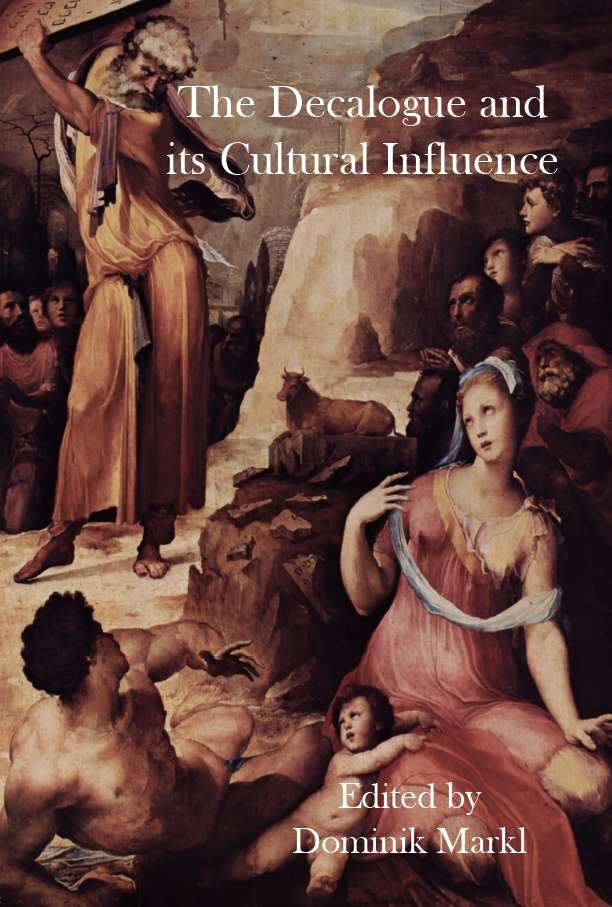
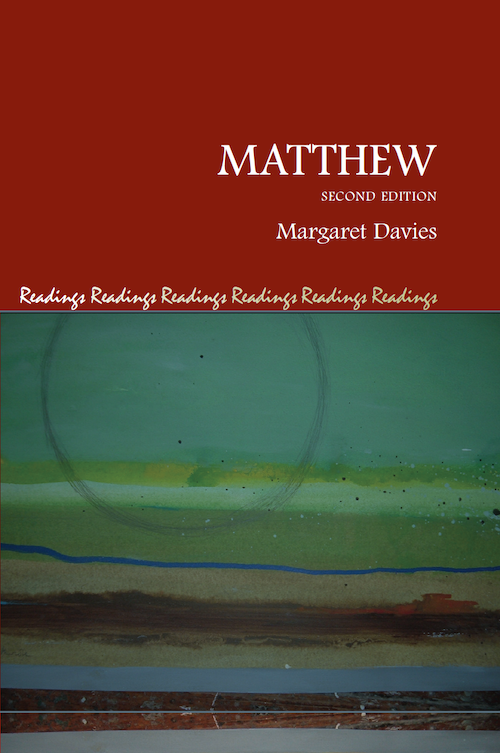


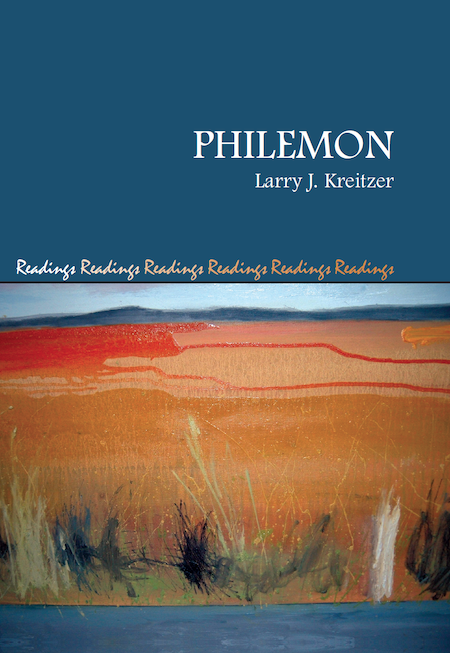
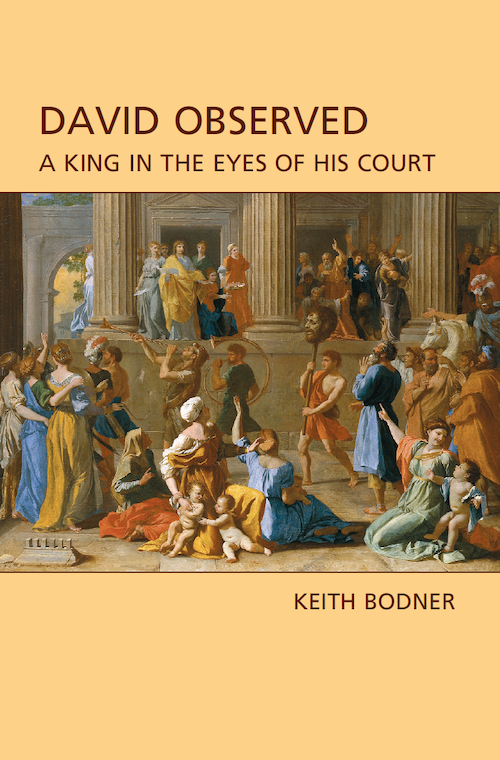
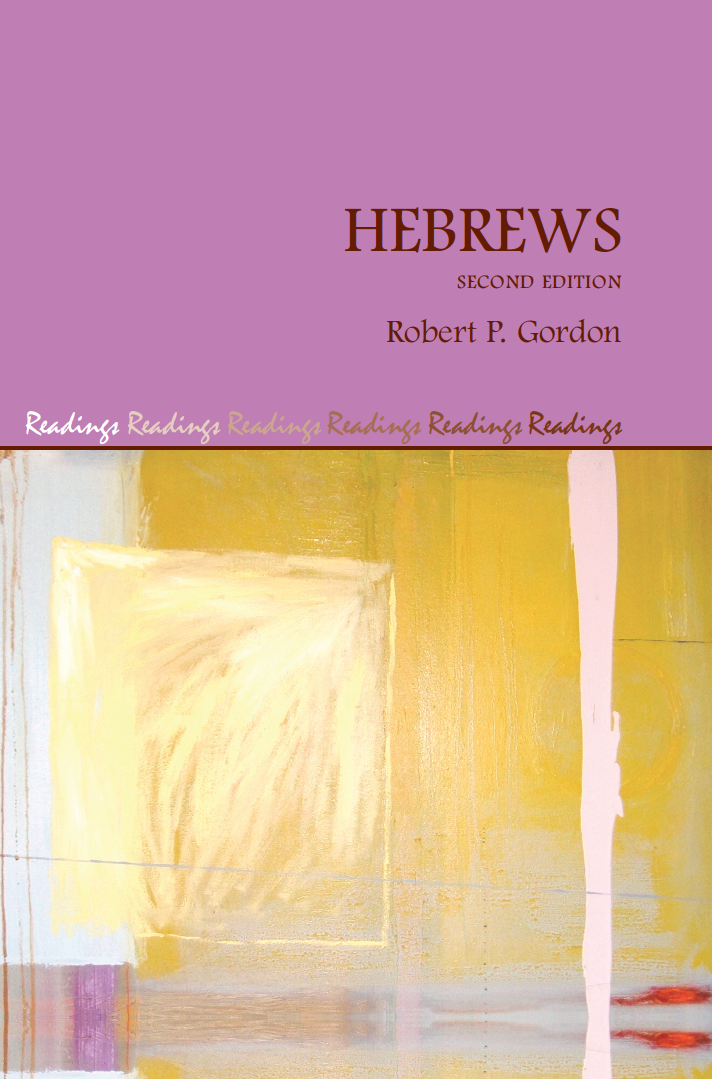
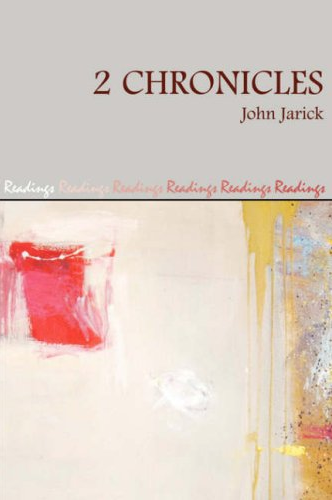
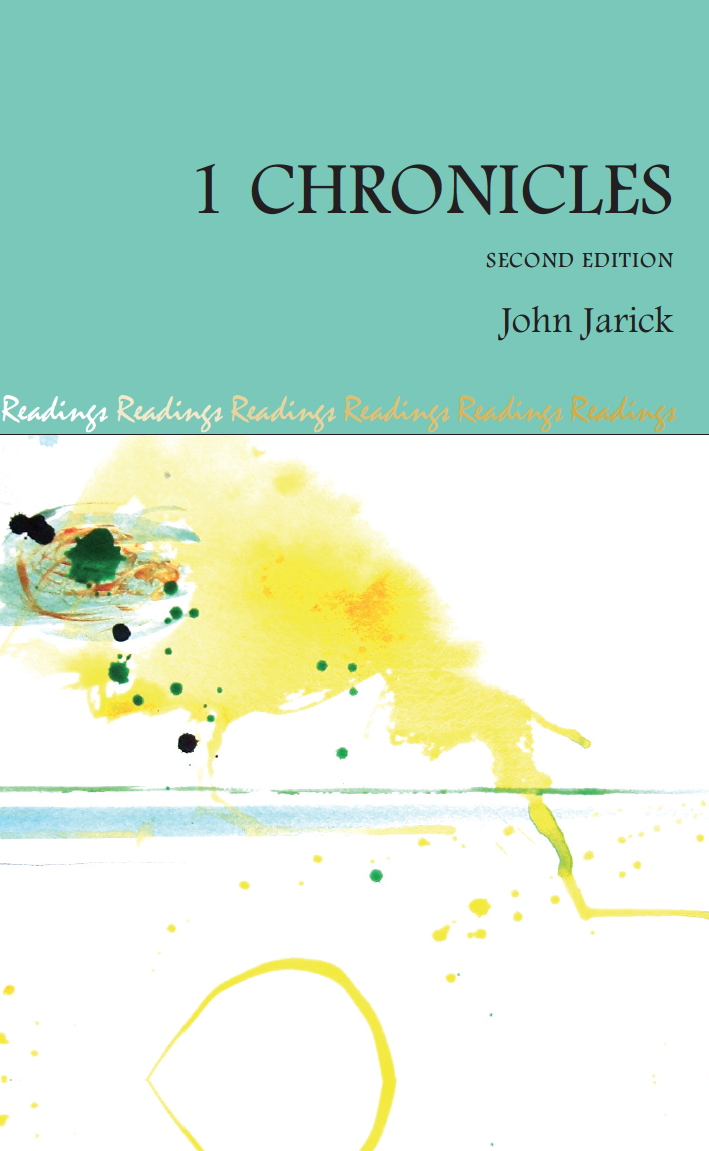
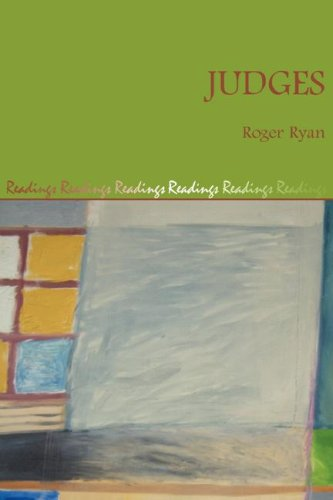
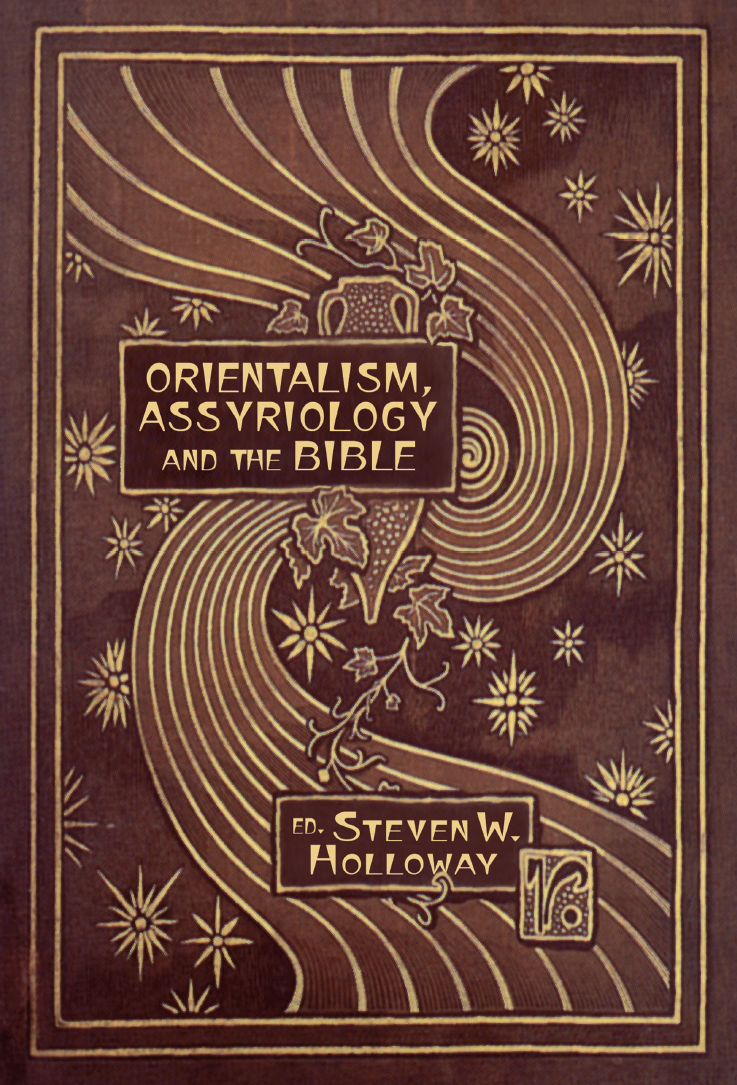
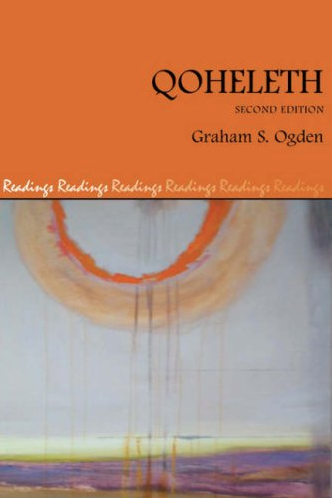



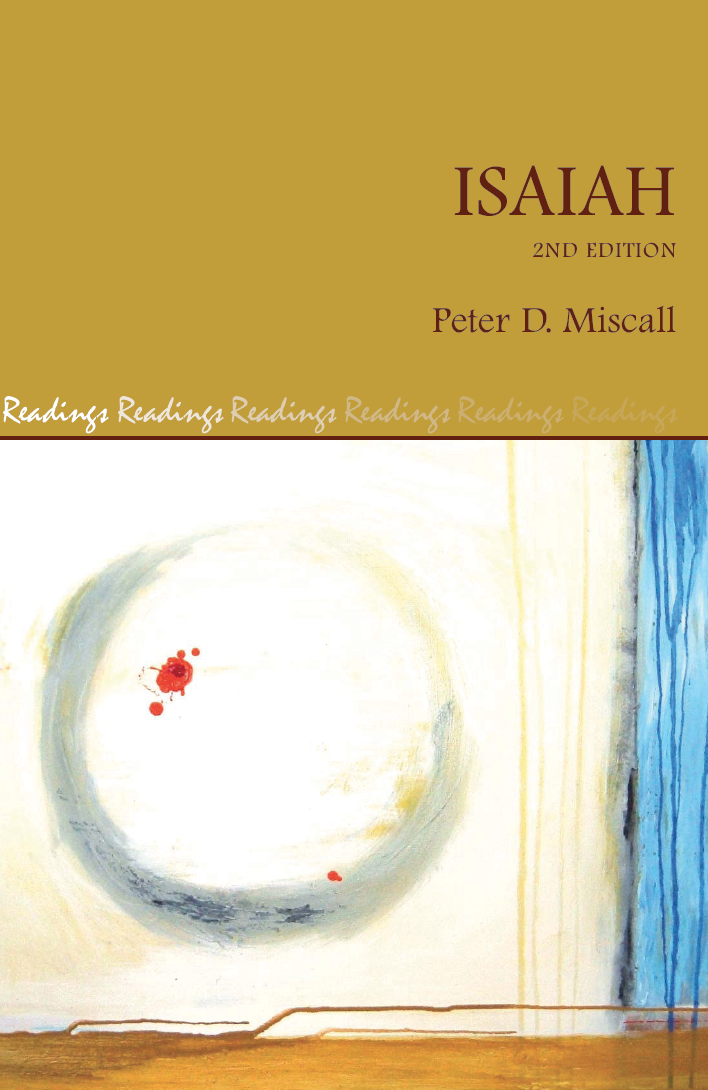


Nahum, Second Edition
Nahum, Second Edition